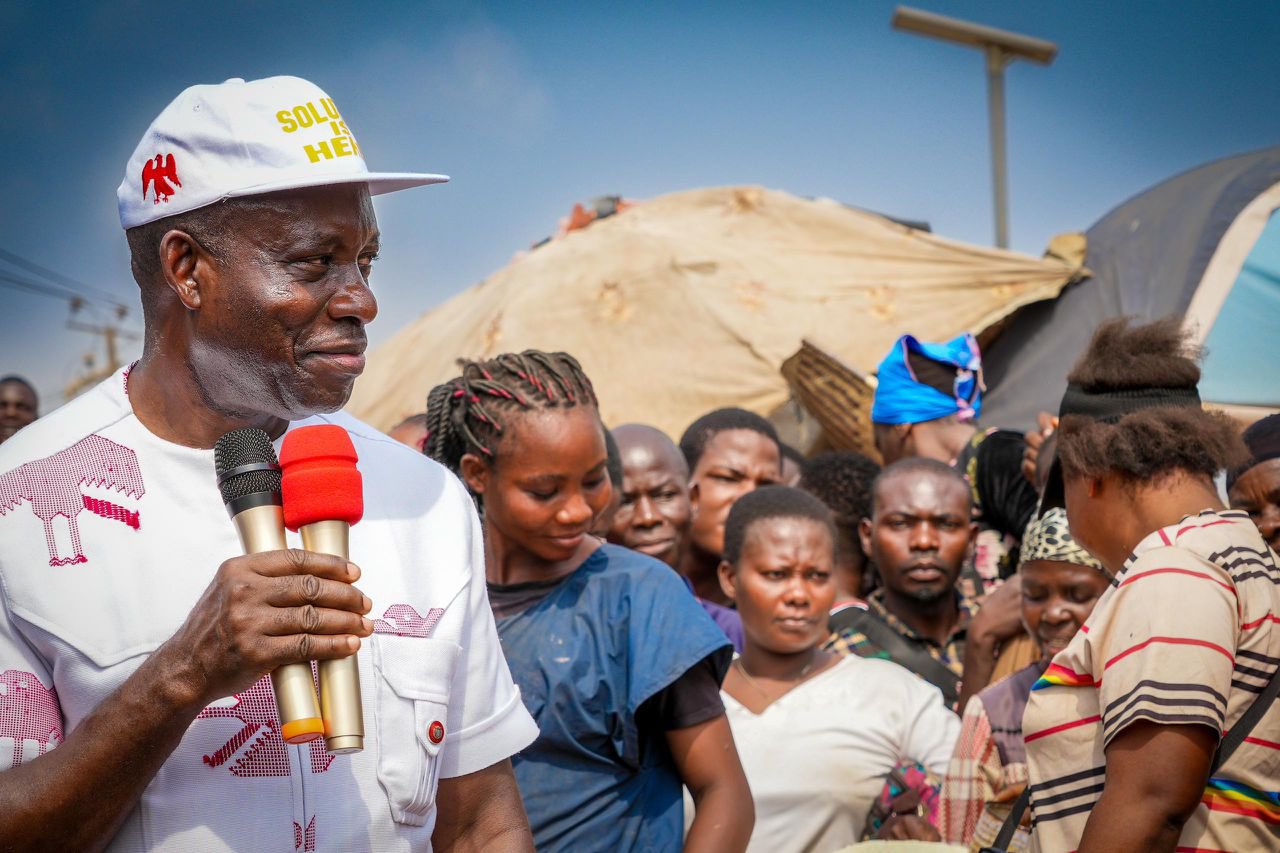I just finished reading a book, and I want to review it because I think that it’s an important little pamphlet in Nigeria’s civic Udo Jude Ilo, a prominent civil society leader, who was once summoned by Nigeria’s secret police and faced hours of interrogation about his organisation’s activities appears to have been fueled by the experience, among others, to share strategies for reform in Africa’s most populous country. The result is “It is imPossible: Influencing Change in Nigeria”. A book of faith if you ask me…
Despite its vast oil wealth and human capital, Nigeria continues to grapple with endemic corruption, political instability, and economic disparity. Against this backdrop, Ilo’s work provides an interesting contribution to the discourse on social and political reform.
The book’s strength lies in its nuanced understanding of change as a gradual, often incremental process. He acknowledges the frustration felt by many reformers—”the more things change, the more they stay the same”—yet argues for persistence in the face of seemingly intractable problems. This perspective offers a novel counterpoint to the impatience that often plagues reform efforts in challenging political environments such as ours.
Ilo’s emphasis on recognising and building upon small successes is particularly valuable. This approach provides a more sustainable pathway for long-term progress in contexts where sweeping transformations are rare. It is a strategy that resonates beyond Nigeria’s borders and applies to reform efforts from Latin America to Southeast Asia.
Advertisement
The author’s exploration of creative messaging and framing is one of the book’s strongest sections. Drawing on concrete examples, Ilo illustrates how reframing issues can shift public perception and build momentum for change. This practical advice is invaluable for activists and advocates worldwide seeking to make their voices heard in crowded and often hostile public spheres.
His focus on locally focused initiatives is equally praiseworthy. By highlighting how grassroots efforts can contribute to broader societal transformation, he provides a roadmap for action that feels achievable, even in the face of national-level challenges. This emphasis on local action echoes successful reform movements in other developing nations, from India’s anti-corruption campaigns to Chile’s student protests.
However, the book is not without its weaknesses. A compact book, it sometimes feels constrained in its ability to delve deeply into certain topics. Readers with extensive experience in civil society sectors may find themselves wanting a more in-depth analysis of specific change strategies or a more comprehensive examination of the unique challenges posed by entrenched political and economic structures.
Advertisement
Additionally, while Ilo acknowledges the frustrations inherent in change work, he could have more directly addressed the deep-seated scepticism and cynicism many feel about the possibility of meaningful reform in highly corrupt systems. A more robust discussion of how to maintain motivation in the face of repeated setbacks and systemic resistance would have strengthened the book’s impact and applicability.
The author’s optimism, while inspiring, occasionally borders on idealism. Given the entrenched nature of many of Nigeria’s problems, some readers may find his assertions about the power of individual and small-scale actions overly optimistic. This tension between hope and realism reflects a broader debate in development circles about the efficacy of gradual reform versus more radical change.
One notable omission is a substantive discussion of the role of technology and social media in modern change efforts. This topic deserves more attention given the increasing importance of digital platforms in advocacy and mobilisation, particularly among youth. The Arab Spring and subsequent movements have demonstrated the power and limitations of social media in driving political change, a phenomenon that merits exploration in the Nigerian context.
Despite these limitations, “It is imPossible” is valuable to the literature on social change in developing nations. Its greatest achievement is reframing the conversation around change from an all-or-nothing proposition to a more nuanced understanding of progress. Ilo’s emphasis on persistence, creativity, and strategic thinking provides a helpful roadmap for those engaged in the difficult work of reform.
Advertisement
The book’s applicability extends beyond its stated audience of civic actors and changemakers in Nigeria. Many of Ilo’s insights are relevant to reform efforts in other challenging political environments, from Venezuela to Myanmar. His strategies for building coalitions, leveraging local initiatives, and maintaining momentum in the face of setbacks offer valuable lessons for changemakers worldwide.
Comparatively, Ilo’s work stands out for its practical, ground-level approach. While it may lack the theoretical depth of works like Acemoglu and Robinson’s “Why Nations Fail,” it offers a more immediate, actionable perspective. In this sense, it complements broader analyses of institutional change with a grassroots-focused strategy guide.
“It is imPossible” is not a panacea for the country’s problems, nor does it claim to be. Instead, it offers a thoughtful, experience-based approach to the challenging work of social and political reform. While it may not provide all the answers, it asks important questions and provides a framework for thinking about change that will be valuable to activists, policymakers, and engaged citizens alike.
In a global context where democratic backsliding and authoritarianism are on the rise, including in Nigeria, Ilo’s work serves as both an inspiration and a reality check. It encourages readers to persist in the face of difficulties while maintaining a clear view of the complexities of transforming a nation. For those grappling with reform challenges in difficult environments worldwide, “It is Possible” offers a tempered but genuine reason to keep pushing forward, one small step at a time.
Advertisement
Nwanze is a partner at SBM Intelligence
Advertisement
Views expressed by contributors are strictly personal and not of TheCable.









